Home
ANNOUNCEMENT(S)
15 February 2024
Thank you June and Intellitrain, welcome CMA
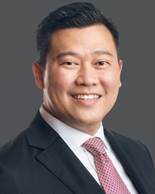
Happy Lunar New Year to all of our fellows, members, colleagues and friends of the SIArb who celebrate.
May the Year of the Dragon bring you joy, success, good health and abundance!
The Lunar New Year is customarily a time for reunions with loved ones, to give thanks and to celebrate new beginnings. In this connection, this season marks a time of thanksgiving and transition for SIArb as we onboard a new secretariat team following the retirement of Intellitrain as SIArb's secretariat services provider.
As a volunteer led organisation with an extremely busy annual programme, SIArb has been fortunate to have had the support of June Tan and her fantastic team at Intellitrain over the past decade. Intellitrain has contributed as a true stakeholder of SIArb, seeing through milestone after milestone, including our 40th anniversary Gala Dinner in 2022, digitalising and taking our Fellowship and International Entry Courses to the next level during the unprecedented pandemic years, launching the Singapore Arbitration Journal and not least organising innumerable successful lectures, symposia, seminars and social events that our members and friends have enjoyed year after year. Despite a challenging handover years ago, Intellitrain leaves SIArb on strong foundations with three consecutive years of growth and a solid financial position.
In these respects, June and her team over the years (including Joy, Lynn, Cheryl, Linh, Daphne, Shandy, Keerthi, Gabriel and others who have worked behind the scenes) will always be fondly remembered as part of the SIArb family.
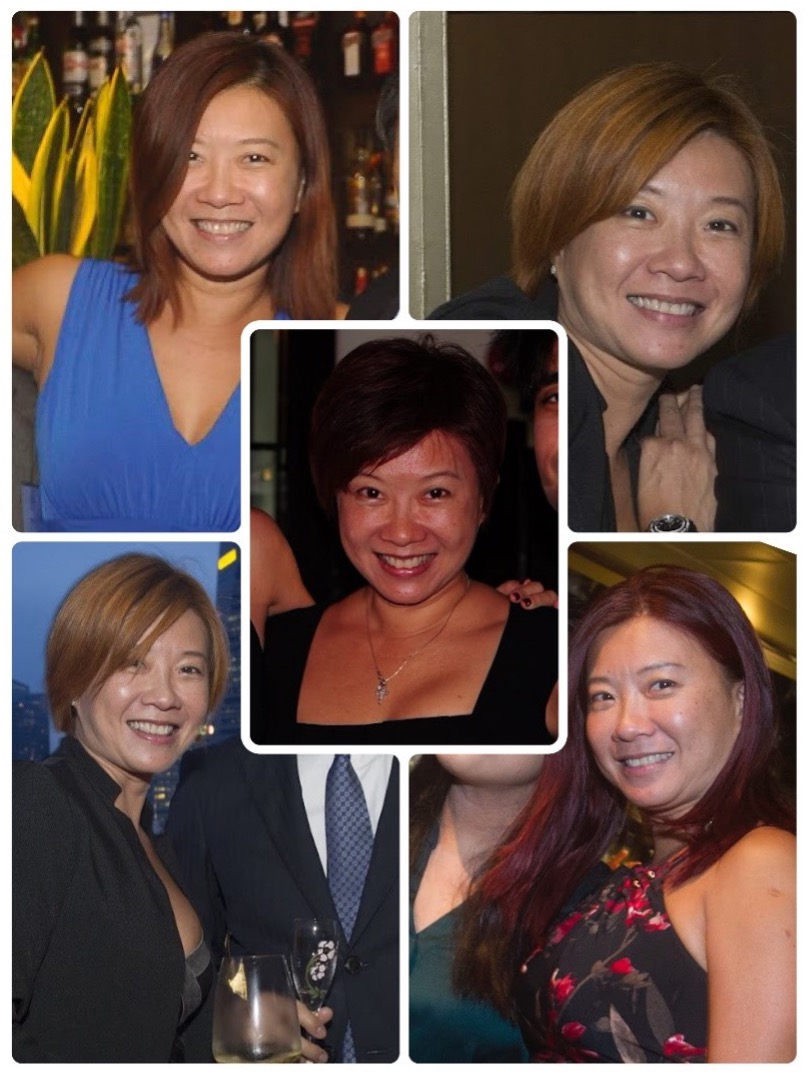
On behalf of SIArb, Council wishes to convey our utmost gratitude to June and her team (present and past) for their contributions to SIArb’s development and evolution. Many of our members will have interacted with June at some point and we will all miss her.
Sadly, the time has come to bid farewell to Intellitrain as secretariat, but we will continue to count them as friends and look forward to welcoming June and her team as special guests of SIArb on future occasions.
Effective 15 February 2024, directors Allison Law and Beatrice Goh and their team at CMA International Consultants will be taking over in providing secretariat services for SIArb. CMA was founded in 1995 and has over 25 years of experience in providing secretariat services to professionals-led associations as well as conference and event management. Their contact details will be published on SIArb's website and LinkedIn page. The new SIArb enquiries hotline will be +65 6336 4970.
2024 got off to a cracking start with two CPD events already, including the ever popular annual 'Developments in Singapore Arbitration' hybrid seminar by Professor Lawrence Boo and Delphine Ho, which again attracted over 100 registrations in Singapore and abroad.
Given the transition in the secretariat team, Council foresees that we are likely to have to moderate the number of events organised by SIArb in the initial few months. Thank you in advance for your understanding and patience as we welcome CMA to the SIArb family. Our priority is to ensure a smooth transition so that our governance and cornerstone activities, in particular our membership and fellowship courses, will not be impacted. We plan to pick up the pace of events again later in the year and will continue to hold our flagship events such as the SIArb Lecture, Annual Symposium and Annual Dinner.
If you have any questions or concerns, please feel free to reach out to me or any of the Council Members.
Thank you and I look forward to seeing everyone at our upcoming events.
Tay Yu-Jin
SIArb Newsletter Issue 45 (31 January 2024)
|
Questions: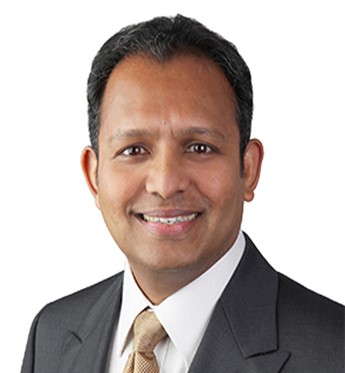
How would you describe yourself in three words?
(1) Thankful (2) Fallible (3) Collegiate – (1) Life is as unfair as it is imperfect. I always remind myself of how much harder things are for others, and grateful for what has worked out in my personal and professional life. (2) The joy of staying curious about what you don't know comes with the humility of accepting the limits of what you do know – so there’s little point, besides hubris, pretending to have all the answers. (3) Exploring ideas with others with a shared sense of respect & responsibility fosters open discourse, generates new perspectives, and encourages those around you to take ownership. It helps if you accept that you are not infallible.
How did you first get involved in arbitration work?
I would like to say it was part of some deliberate carefully thought-out plan of action - it wasn’t. As with much in (certainly my) life, it was a fluid mix of circumstance & choice.
In the late 1980s, my then Firm was looking to start a construction disputes practice. That coincided with my leaving for London on a British Council Fellowship program for young lawyers in the Commonwealth. With some nudging from my Firm, I ended up spending time with the construction & disputes groups at Herbert Smith and the barristers at 10 Essex Street (later renamed Keating Chambers, with the passing of Donald Keating, who was head of chambers during my brief stint). I enjoyed the work and, on my return, turned my attention to growing the construction disputes practice. Of course, then as now, almost all the construction contracts had arbitration clauses. And that marked the start of my journey down that rabbit hole.
In the course of your work, do you notice a trend in clients preferring arbitration over litigation as a form of dispute resolution?
The lawyers have always enjoyed the relative informality and more congenial dynamics of arbitration - none of the formality of gowns, standing when speaking, and bowing. No one lords it over the others. There is a general sense that everyone is working together to sort out a common problem, quickly and effectively. For the clients, they see real value in not just the confidentiality of arbitration, but the ability to choose a Tribunal they have confidence in.
Of course, there is the trade-off of finality. But there is good commercial sense in moving on quickly from a dispute, rather than languishing in the perfection of an appeals process that drags it out.
While there have been changes of degree over the years, these broad distinctions remain and will continue to draw many to arbitration over litigation.
What is the most memorable arbitration or arbitration related matter that you were involved in, and why?
It was an arbitration some years ago with Lord Hoffman as presiding arbitrator. I sat in, having had a minor ringside role as counsel on some related Court proceedings.
Lord Hoffman was treated as a bit of rock star in the corridors of Maxwell Chambers during the breaks, with countless lawyers wondering in and out of other hearings posing for pictures with him. He seemed quite game and was happy to accommodate the never-ending intrusions as he tried to fight his way to the restrooms during the breaks. But I digress.
The arbitration was a complex hard-fought case. Both parties had QCs (as they then were). At the close of the hearing, Lord Hoffman asked the 2 QCs to confirm in turn that they each had a reasonable opportunity to present their case. It seemed a bit of a formality and the easy going manner in which Lord Hoffman raised it suggested he thought so too. And so, it seemed did the QCs, until it came to the 2nd QC.
As everyone waited for the expected confirmation, he cleared his throat and then stunned the room by announcing that his instructions were to decline the confirmation. Everyone looked up from packing their bags. No one said a word. As the attention turned to the Tribunal, Lord Hoffman had a look of mild surprise seemingly mixed with irritation. it was hard to tell which was dominant, from my restricted view seat on the outer stalls. He held a brief discussion with his wing arbitrators.
He then turned to the QC with a look you might expect a school principal to give a schoolboy caught smoking and announced that if the QC was unable to provide the requested confirmation, the Tribunal would invite the party to make a formal application to deal with any perceived or real shortcomings. The Tribunal would consider the application and make a ruling.
The QC didn’t appear to have expected Lord Hoffman to return what he thought was his ace serve. He called for time out seeking an adjournment to confer with his clients. They all trooped out. When they returned, the QC quite meekly gave the confirmation Lord Hoffman had sought!
It was a master class in how an experienced Tribunal can diffuse what would otherwise have remained a slow burning threat about due process, that could have been used in a Court challenge if the Award went against the party.
Who is the person(s) who has had the greatest impact and/or influence on your career?
Joe Grimberg. He understood that as Counsel, the Tribunal looks to you for answers. Not your team – you. So, he made sure he was always on top of the law and the facts of his case. That required hard work. He would often book himself into a hotel room in the weeks leading up to a heavy hearing to ensure he could work without distraction.
He treated his opponents as he did those he worked with – with courtesy and respect.
Even as a pupil, he would introduce me to clients as his colleague. He was then Senior Partner of Drew & Napier, and the doyen of the Singapore Bar. As a pupil (or trainee as they are now called), I was a notch below the bottom of the food chain. You didn’t see that kind of attitude very often.
I have tried hard to emulate his professional values ever since.
If you weren’t in your current profession, what profession would you be in?
Probably an architect. I enjoy beautiful buildings - from the spectacular art deco of the Chrysler Building in New York, the neo-gothic, art nouveau style of Antoni Gaudi’s dizzying work in Barcelona, the modernist & contemporary fluid lines of Frank Gehry’s Guggenheim Museum in Bilbao to our very own ‘typewriter” Golden Mile Complex with its (somewhat uncharitably named) brutalist style.
They are all joys to behold. Who would not wish to be part of creating something that so elegantly straddles the line between utility and art.
What’s your guilty pleasure?
Seeking to conjure the perfect gin tonic and creating home gin infusions.
What is one talent that not many people know you have?
Struggling amateur musician.
PRESIDENT'S MESSAGE
MAY 2023

Two weeks ago, I had a nice opportunity to catch up in person with our New York-based Council Member, Meera Rajah, who arranged a visit for SIArb to the NYIAC. This is but one of several recent examples in which SIArb has been invited by arbitral organisations in and beyond Asia to explore collaboration in a variety of ways. In many respects, this is highly encouraging as it reflects our Institute’s growing reputation beyond its local roots and beyond Asia. Your Council will continue to work hard to add value to the SIArb brand so that our members can be proud of association. There will be a few upcoming events that afford opportunity for our members who are interested in networking beyond Singapore to participate. Details to come in due course.
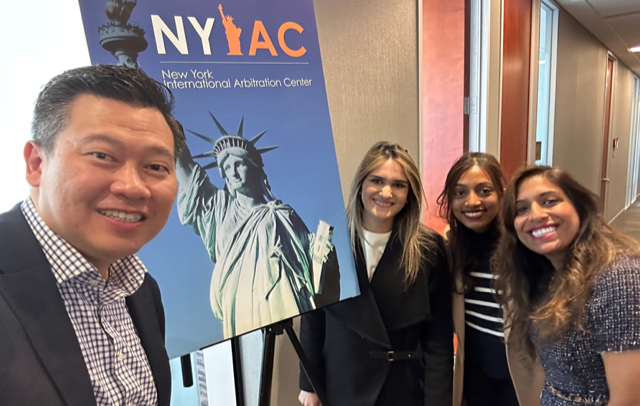
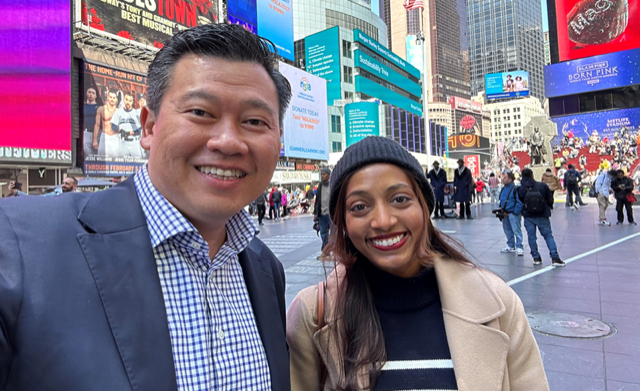
Meanwhile, I thought I would highlight on this occasion the commendable work that our Young Practitioners Network (YPN) co-chairs Meera and Cathryn Neo, with June Tan of our Secretariat, have been doing in relation to recent YPN events. Distinct from other arbitral ‘young’ groups, SIArb made a conscious choice to have our YPN be open to members who (i) are professionals under 40 years of age, or (ii) have less than 10 years of arbitration experience.
According to the most recent ICC statistics available on the subject, in 2020, the average age of arbitrators confirmed or appointed by the ICC Court was approximately 56 years old and about 37% of individuals confirmed or appointed as arbitrators were under the age of 50. There is room therefore for us to have a more inclusive conception of ‘younger’ arbitration practitioners.
On 2 March 2023, YPN held its third networking drinks – this time in person at Maxwell Chambers – organised around the perennially popular theme of how one might go about getting a first arbitrator appointment. The event drew a good mix of lawyers and non-lawyers who discussed, among other things, practical advice on how to transition into arbitration mid-career, from a related industry and ways to go about networking effectively.
Later this month, on 25 May 2023, YPN will launch its inaugural SIArb YPN Mentoring Programme. Meera and Cathryn explain that this programme emerged out of the success of the first two YPN networking sessions (which were conducted virtually during the pandemic). The programme pairs mentee participants with mentors for a 6 month mentorship – which is intended to allow mentees time to forge professional relationships with mentors with whom they might otherwise not encounter. Our first batch of mentors come from a variety of backgrounds – some sit full time as arbitrators, others also serve regularly as arbitration counsel and experts, and yet others hail from arbitral institutions.
An initial batch of 30 mentees will be picked to participate and they will be organised into six groups of five mentees each, paired with one mentor and one facilitator. The programme runs from the kick off at the end of May till the end of 2023. Singapore-based mentees with four years of experience or less were eligible to apply. Please look out for more news on this if you are interested in participating in future programmes.
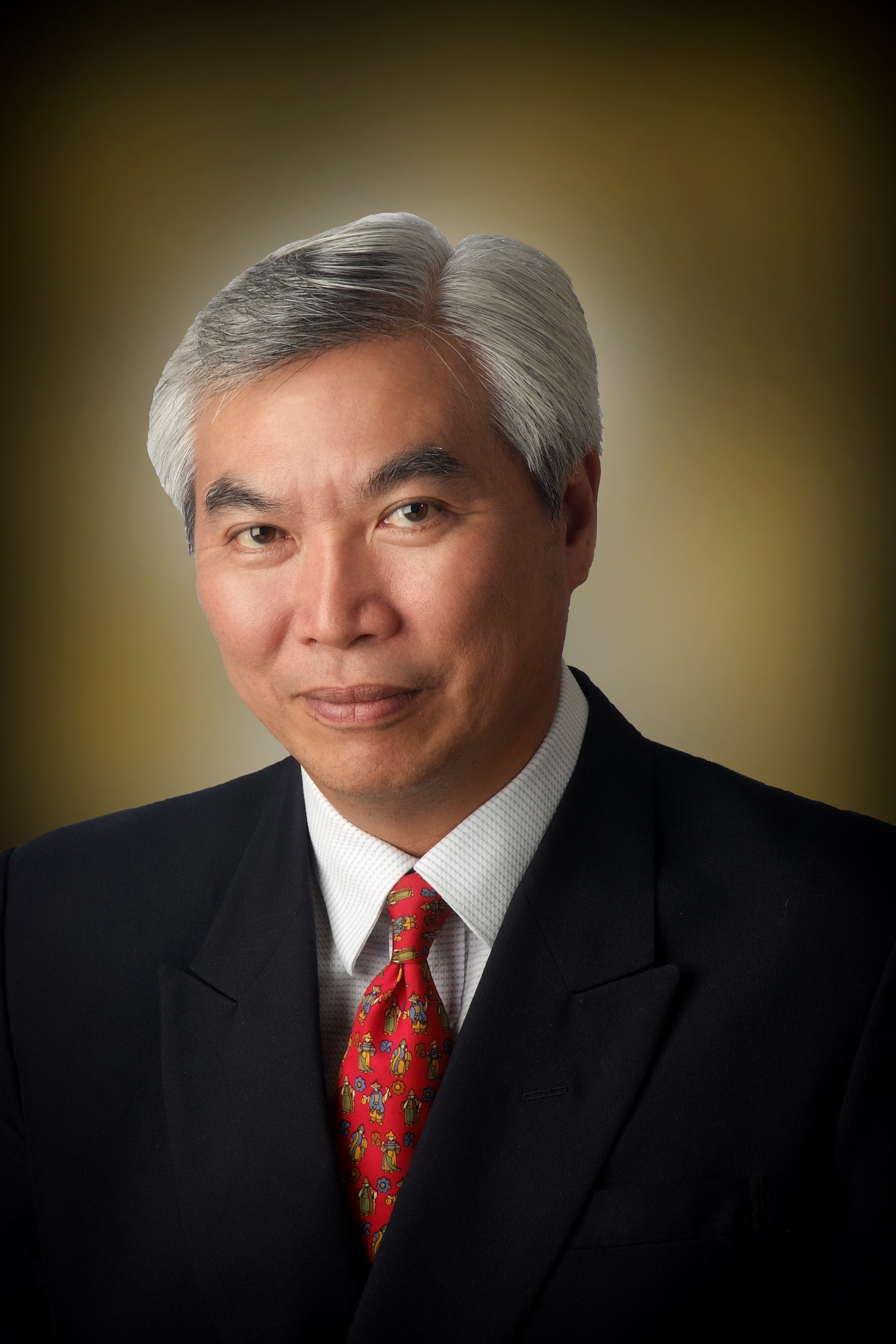
Questions:
How and why did you make the switch to become a full time arbitrator?
To your point, I am not a full time arbitrator as I have other professional interests but I did make a switch from being a full time salaried employee to become an independent arbitrator – let me explain. I was the Executive Director of the Spore Chamber of Maritime Arbitration (“SCMA”) from 2010-2016 which provided me with a very broad foundation to better understand arbitration’s role in ADR and to connect with a really broad base of arbitration stakeholders. My mentor, the late Goh Joon Seng, saw something in me that I could not see in myself and suggested that the time was ripe to leave and establish my own practice as an ADR consultant, which included being a practising arbitrator. With his encouragement and support, I took the plunge to leave SCMA, founded LWP.Sg Consultants in 2016 and his words have proved prophetic. The timing could not have been more perfect for me and COVID-19 was a great help.
What is your favourite dish?
Outram char kway teow plus additional cockles located at Hong Lim food centre. I get invited to lots of fancy dinners featuring excellent cuisines but this dish hits me right in the gut where all of my meal response cells are located.
What is a typical year for you - how do you divide your time between the different hats you wear and the different countries in which you practise?
As the Regional Advisor to the Thomas Miller Group, I allocate about 5 to 7 days in a month to further their interests through a broad spectrum of activities, particularly the UK P&I Club.
In addition, there are various enquiries for arbitrator, mediator or adjudicator appointments to attend to – for conflict checks if nothing else. For those which end up in appointments, I would need to allocate time to finalise appointments, fee agreements, engage with parties to give directions to kick start the process and work with parties to move towards a hearing and start reading the bundles as and when they are submitted. Arbitrations are particularly time consuming as and when they approach the actual hearing milestone with issuance of directions for hearing arrangements after consultation with parties and lots of reading of submissions, skeletals and authorities in order to be as fully prepared as possible at the Hearings themselves. The award writing process is also very time consuming. Mediation tend to be less intensive due to the shorter nature of the hearings (usually not more than 2 days plus not having to spend time writing awards) and the submissions for reading is considerably less. Adjudication is somewhere in between.
I also conduct courses on shipbroking and chartering for members of the Spore Shipping Association (SSA). The duration of each course is 2.5 days of lectures which I deliver personally and SSA typically organises anything from 2 to 4 courses a year. I have been conducting these lectures for over 30 years and have taught thousands of members of the shipping / commodity trading community.
In support of ADR development, I am also a Coach of Coaches as well as an Assessor at SMC and am engaged every quarter for their training courses. This includes the rather massive and intensive exercise at every year’s end (currently in progress) organised by them for law students taking their Part B Mediation Advocacy course. As interest in mediation continues to rise, this is mirrored in the number of students registered and this year’s batch number in excess of a two hundred. I would also be invited to judge various competitions in mediation each year and am very honoured to be invited to judge the semi finals / finals of SMU Mediation Advocacy Competition 2022.
So in a nutshell, there is no fixed pattern of time allocation for me and a typical year would involve flexibility to juggle all of the above plus an annual trip to the UK (except for the past 2.5 years due to Covid) to catch up with my contacts there. Lastly, I also spend time putting on my hat as grandfather and chasing after my 2 very active grandchildren as they grow up so as not to lose out (Kiasu FOMO at work!!) on the joys of grand fatherhood. The one observation I can share with everyone reading is that each passing year becomes more busy than the one before. This is a good profession to be in where things have an excellent chance of getting better with age, both in terms of number / type / quality of appointments and with them, attendant fees!!!
What is the most memorable arbitration or arbitration-related matter that you were involved in, and why?
To be party appointed as an arbitrator to a 3-person (3-men in my case) Tribunal with my opposite being a newly appointed QC (as he was then) who is now KC and the chair being a very established (read as quite OLD, ha ha) QC / KC with another established QC / KC (not as old as the Chair) arguing for one side together with the instructing local firm and an international law firm arguing for the other side. It was memorable for the very complicated issues of law and the commodity industry subject matters involved which required the application of the Tribunal’s combined knowledge and experience to deal with many of the issues expeditiously and (I hope) without undue error in getting the fact finding and application of the law done and dusted.
As an arbitrator, what in your view are the key qualities or traits an arbitration counsel should possess when representing a party?
Without ranking them in any particular order, I would mention Integrity / Deep knowledge of both domestic and international arbitration law and practice / Tackling and strategising enforcement issues with the client / Willingness to consider blending of other types of ADR such as mediation / neutral evaluation into the mix as a total solution and to be strong enough to advise their clients without worrying that they may be viewed as “weak” / Strong advocacy skills.
What advice do you have for a young fellow practitioner interested in developing a career as an arbitrator?
Don’t ever believe that the runway for your career as an arbitrator is cleared for take off simply because you have passed your Fellowship exams. It is merely the starting point, as much of what has been learned and examined are foundational in nature. There is still so much more to learn in terms of practice like how to actually run an arbitration from start to finish practically and getting yourself known and accepted in the industry as someone who can be trusted to be an arbitrator. I would therefore advise that you need to surround yourself with people who wish to see you succeed as a new arbitrator through their actual words and deeds instead of just paying you lip service so that can help facilitate you to be immersed constantly into the soup of the arbitration community. If someone who is really experienced, successful and recognised as an arbitrator takes an interest in your development and is prepared to be your mentor, drop everything else and capitalise on the offer to the maximum – such persons appearing in your life are like unicorns. I speak from experience so I should know – it happened to me.
You're fluent in English, ****, **** and ****. Rank them in order of difficulty.
I am fluent in English, Chinese and Malay – To be totally honest, only true for English actually – my Chinese is bad and Malay is really bad. If I am held hostage and have to negotiate in Chinese or Malay to secure my personal release, it’s time to start looking for slots to print my obituary.
Would you rather win an Olympic medal, an Academy Award or the Nobel Peace prize?
Nobel Peace prize – no reasons given because I was not asked – just like how some decisions to resolve disputes are not accompanied by reasons – don’t ask, don’t give reasons for your decisions – sound advice from my mentor.
Who would play you in a movie of your life?
My mentor, Goh Joon Seng.
How would you describe yourself in three words?
Calm, collected and compassionate.
How did you first get involved in arbitration work?
The first Executive Director of the SCMA after it was re-organised was working on a part time basis and was leaving for a full time job. Being a good friend of mine, he called me to apply, which I did - even though I had no legal training. Instead, what I had in my bag was an extensive network of close contacts in the maritime industry and much to my surprise, was accepted. My real involvement in arbitration work actually started on the morning of my first day of work - when I had to force down the vomit of manic fear and panic that I might have dug too deep a hole for myself in taking up the new challenge. Calming myself down suitably after swallowing the vile taste of my vomit, I gamely turned up for my first day of work and have kept going on ever since into my 12th year now. I’m not suggesting that swallowing your vomit is a good way to get started in arbitration but fighting down your inner fears so that they don’t get the better of you is never a bad thing.
In the course of your work, do you notice a trend in clients preferring arbitration over litigation as a form of dispute resolution?
No, I think arbitration and litigation are chosen by savvy clients for their own unique reasons to strategise which form of dispute resolution works best for their particular business contracts should disputes arise - such as whether they are cross border in nature or to take into account pre-existing relationships between parties. Parties who don’t know better will continue to rely on using past contracts and counsel for guidance. For resolving tortious disputes such as claims arising from ship collisions, instead of using litigation which is the default method, there is now an option to arbitrate using a carve out called SCMA EXPEDITED ARBITRAL DETERMINATION OF COLLISION CLAIMS (“SEADOCC TERMS”) - a procedure which I created with assistance and support from several lawyers very experienced in collision disputes back when I was ED of SCMA. Finally, arbitrators are at the receiving end of the dispute resolution chain, i.e. they only get to see cases when disputes actually arise. The right parties to ask this question are the lawyers as they are at the front end of the food chain, advising their clients on choosing litigation or arbitration to be negotiated into their contracts for dispute resolution and are thus able to get a better sense of the pulse.
What are the challenges you think arbitration practitioners will face in the upcoming years?
The field is getting more and more crowded. Disputes are becoming more and more complicated because of businesses are becoming increasingly complex which in turn demand more extensive and intensive subject matter knowledge. The risk of Tribunals getting it wrong in terms of fact finding in such disputes has increased. Added to that, the rise in international trades between more and more new partners which can make cross border disputes much more difficult to manage in terms of conflicting cultural value systems and expectations.
With the establishment of the Singapore International Mediation Centre and the introduction of the SIAC-SIMC Arb-Med-Arb Protocol, do you see mediation as now having a bigger role to play in assisting parties to resolve their disputes?
Yes but with respect, I would venture to say that SMC was the lead organisation that really kick started this process together with the courts in the first place.
Who is the person(s) who has had the greatest impact and/or influence on your career?
The late former Justice Goh Joon Seng
If you weren’t in your current profession, what profession would you be in?
I would be a senior citizen dispensing advice in the shipping world, where OLD is not necessarily GOLD unlike the world of ADR. I would certainly not be engaged in day to day shipping work as the pace is too fast moving and more suited for the younger generation like my son. Although not asked and slightly off your point - I would have liked to be an actor where OLD still has the potential to be GOLD.
What’s your guilty pleasure?
Spending time playing with my grandchildren and influencing them positively in their growing up process.
What is one talent that not many people know you have?
That I once ran a 100 km ultra marathon non-stop in my 50’s and completed it in 16 hrs and still had enough energy to attend a wedding shortly after that before returning home to get some much needed sleep….
Fill in the blank: “Arbitration is to dispute resolution as salt is to _________."
"the sea"
71% of the world is covered by the sea water and if you tried to separate them, you will have the world’s entire population of fish and other sea creatures beating a path to your door disputing your decision and demanding that you set things right again.
SIArb Newsletter Issue 44 (10 May 2023)
|
Latest News
- Website Update In-Progress
- SIArb’s Annual Commercial Arbitration Symposium and Annual Dinner (29 November 2023)
- SIArb Annual Debate 2023 "This House Believes That AI Arbitrators Will Eliminate Cultural Biases In International Arbitrations" (7 December 2023)
- SIArb Young Practitioners Network Mentoring Programme (25 May -31 December 2023)
- SIArb YPN Networking & Drinks Event 2023: How To Get Your First Arbitrator Appointment (2 March 2023)
- WEBINAR: Developments in Singapore Arbitration (16 February 2023)
- SIArb "Beyond Arbitration: Global Perspectives" Lecture - Principle, Policy and Diplomacy in International Relations (6 September 2022)
- Webinar Series: Focus on Energy Disputes - Part 2: Renewables (28 July 2022)
- SIArb Focus on Energy Disputes- Gas (21 June 2022)
- SIArb Roundtable Discussion on: “How to Make a Career in Arbitration” (2 June 2022)
About SIArb
The Singapore Institute of Arbitrators is an independent professional body established in 1981. We are a truly neutral professional body with no link or affiliation to any particular industry but bonded together with a common interest in arbitration & other alternative dispute resolution procedures. Presently, we have almost 1000 members geographically represented throughout the world, many are practising professionals from a wide spectrum of diversified backgrounds who are also directly and indirectly involved in the dispute resolution procedures as Arbitrators, Mediators, Expert Witnesses and Consultants. Our main focus is in the aspect of professional training & development. Besides being a centre for promoting knowledge of arbitration & other ADRs, we also act as an appointing authority for the appointment of arbitrators upon requests. We work closely with the Singapore International Arbitration Centre. READ MORE
Latest Events
| 01 Jul 2024 SIArb Young Practitioners Network Mentoring Programme 2024 |
| 21 Nov 2024 - 21 Nov 2024 11:30AM - 10:30PM SIArb 14th Annual Commercial Arbitration Symposium & Annual Dinner 2024 |
| 26 Nov 2024 - 26 Nov 2024 05:30PM - 08:30PM SIArb Annual Debate 2024 |
Site designed and maintained by Intellitrain Pte Ltd. Copyright © Singapore Institute of Arbitrators. All rights reserved.


 PRESIDENT'S MESSAGE - May 2023
PRESIDENT'S MESSAGE - May 2023
